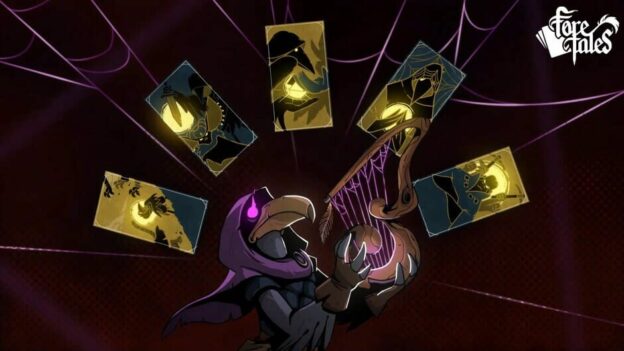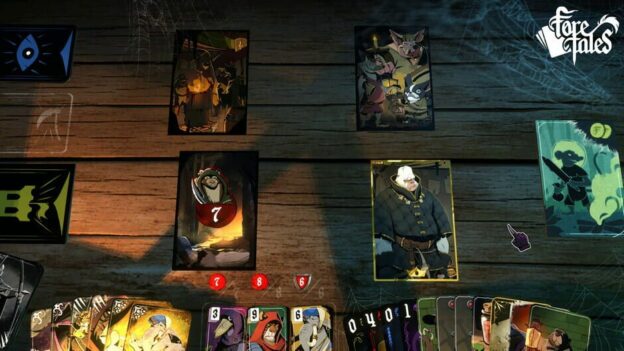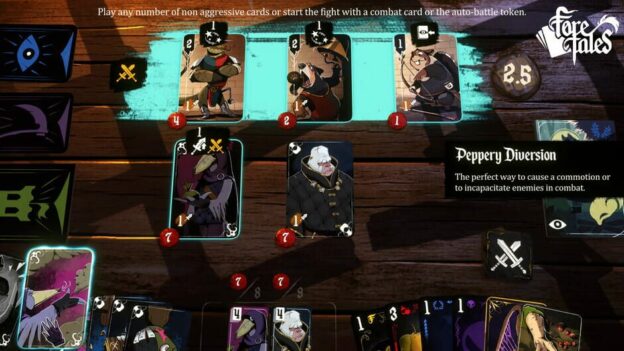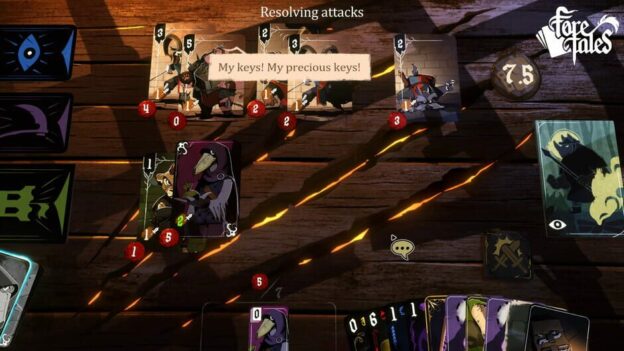Boards, cards, and deck builders are popular genres right now. And the Nintendo Switch is the perfect home for them. I love Slay the Spire, Monster Train, Voice of Cards and Carcassonne. To name a few of our favorites, however, these games have one thing in common. It’s not plot-driven. The latest entry into the world of card games, Foretales tries something different because it’s a narrative-driven game. There were some frustrating moments (which I’ll get to in a minute), but overall my experience with Foretales was positive.
The story revolves around two main characters, Volepain and Leo. Two low-level thieves are trying to get one last job before quitting. Their final act involves stealing a magic lyre. This will cause Volepain to display another timeline when you touch it. You can choose your team’s path through this mechanic and see how it ends. The world of Foretales is rich, full of intriguing encounters, deep background stories, and lovable characters. The artwork complements this beautifully, and the voice acting fleshes out the experience.

Calling Foretales a deck builder is not wrong. However, it feels more like a strategy game. Many card-type games involve an element of luck. The cards you draw determine whether you get a good hand. In Foretales, each character starts with a full set of skill cards to play, and as each level progresses, his skill cards decrease.

The board consists of location cards that advance the story, enemy decks, graveyards, character skills, and items you pick up along the way. A table of play consists of two or more location cards. Various effects occur when playing ability or item cards in a locale. For example, one of Volepain’s abilities is to steal. You can get food or money by playing this with market cards.
Match a card to each location to see what you’ll receive if you play that card. How you play your cards is all part of your strategy. You can play any card you like, but some cards have better results. For example, some cards provide items, while others advance the story. You may need to retrieve an item card from an area for future play. And this can be frustrating as it sometimes takes trial and error to find the right combination of cards to play. . Several times I had to start the level all over again. I appreciate that the scenario is not too long.

You may also fight enemies. The turn-based combat system works well, and you can avoid combat entirely if you play your cards correctly. Defeating your opponent earns you notoriety points. Outsmarting your enemies earns you fame. Playing these on locations and villains will also affect the outcome of the game.
Another aspect of strategy is how missions are selected. Each level has a number associated with it indicating the number of turns remaining before a catastrophic event occurs. If you don’t solve the scenario in that time, bad things will happen. This is an interesting mechanism that emphasizes the importance of decision making.


